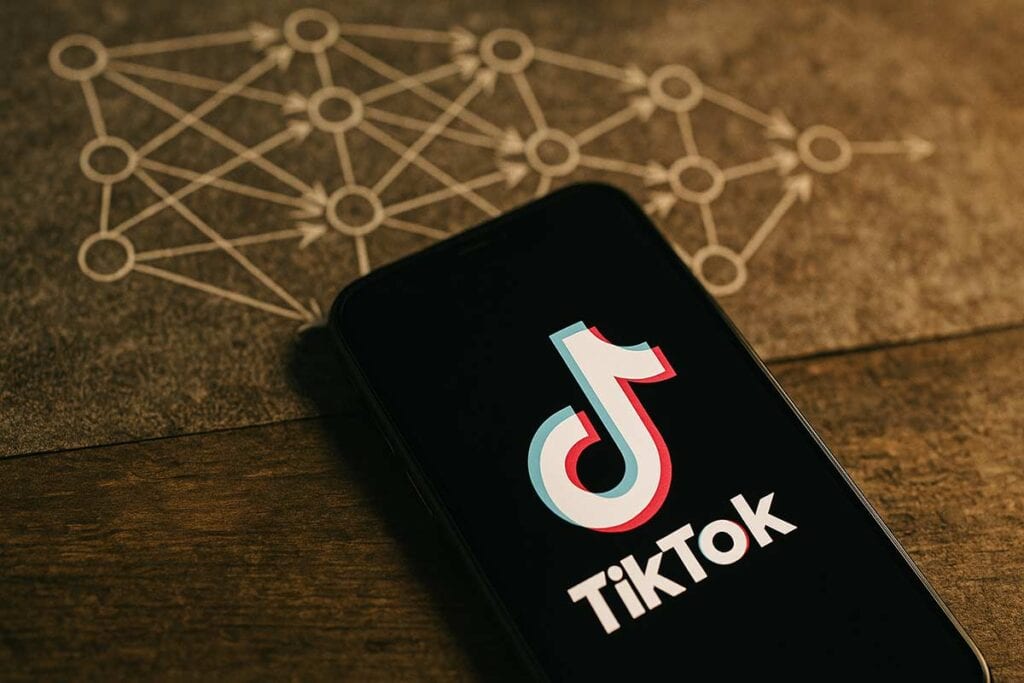By Dario Betti, CEO, Mobile Ecosystem Forum (MEF)
Social media platform TikTok is a vast, endlessly scrolling stream of creativity, mimicry, and influence. Around 170 million Americans now open the app regularly, joining hundreds of millions more around the world in what has become a kind of global video bazaar. It is, as some have called it, a smorgasbord of culture. Yet “dim sum” might be the better metaphor, because TikTok’s ultimate owner is ByteDance, a Chinese company – and that fact has been a persistent thorn in Washington’s side.

A framework deal for TikTok’s US operations to be transferred to a consortium of American investors was announced in September. This may soothe anxieties about Beijing’s reach, but it also concentrates control of one of the world’s most influential platforms in the hands of a small circle of US billionaires. What began as a debate about data security has evolved into a reshaping of the digital marketplace itself — one that touches advertising, messaging, app development, and the telecom networks that bind them together.
The Billionaire Board
Wealth is power, and power now owns the platforms of speech; all sizable social media in USA is owned by US billionaires. The US TikTok board will read like a map of concentrated influence: Larry Ellison, Rupert Murdoch, Michael Dell, and their sons.
Ellison will oversee the US version of TikTok’s algorithm and data management. Oracle will “recreate” the recommendation engine and host it on its cloud, effectively owning the machine that feeds videos to 170 million Americans. It is a quiet but massive shift in the power structure of digital attention.
The algorithm and the illusion of safety
Officials say the deal will prevent foreign manipulation. US authorities have long been concerned that TikTok’s ownership by a Chinese company could allow the Chinese government to access sensitive American user data, influence public opinion, or even use the platform for covert intelligence operations. While the algorithm hasn’t changed, replacing Beijing’s reach with a domestic boardroom removes the potential for foreign government interference, but it doesn’t make the system transparent or immune. It only changes who can steer it – and who profits.
Larry Ellison has long believed that society runs better when it is watched. “People behave best when everything is recorded,” he once said. Oracle has a history of collecting user data without clear consent. It settled a lawsuit in 2022 for tracking billions of people through ad-tech tools. Its dream of total visibility fits uneasily with the idea of digital freedom.
TikTok’s algorithm is not a neutral instrument. It decides what millions see, and what they don’t. To “franchise” such a system means licensing the power to influence minds. If the algorithm becomes a US asset, its tuning may reflect domestic politics rather than Chinese interests. Trump joked he would make it “100 percent MAGA.” It may have been a joke, but the concern is real. The capacity to bend public mood is now in private hands, aligned with political power.
Surveillance and Soft Power
China’s role in global data collection triggered this deal, but the US answer risks repeating the same model under a different flag. Ellison has ties not only to Trump but also to defence donors, and to the data surveillance industry. Oracle’s partnership with police departments and intelligence agencies suggests that TikTok’s US infrastructure could merge with wider systems of monitoring.
The danger now is that national security becomes a license for domestic propaganda. What began as protection from a foreign threat may end up entrenching ideological control at home.
The Mobile Fallout
For advertisers, it creates another walled garden. Data that once circulated through open ad-tech channels will be captured inside Oracle’s cloud. Independent ad networks and smaller players will pay more to reach users and may see their analytics restricted.
For messaging platforms, it sets a precedent: political leaders can demand ownership changes in private apps. Once governments begin to redraw the map of platform control, no service is safe from political bargaining. Encryption and cross-border interoperability could be next.
For developers, fragmentation looms. A TikTok split into national versions suggests a future of “sovereign algorithms.” Each country could demand its own cloud, its own rules. Innovation thrives in open systems; it dies behind borders.
For telcos, the deal is another reminder of their paradox. Networks carry the traffic but lose the value. If platforms become tools of surveillance or propaganda, operators risk being conscripted into systems they do not control. The line between carrier and controller is blurring fast.
MEF believes regulation must be firm yet neutral. Security is necessary, but it must not become a pretext for political capture or monopoly control. The mobile ecosystem needs rules that protect users’ rights and ensure fair competition, not deals made in campaign season.
Changing the owner does not change the algorithm’s power. It only changes who it serves.

Dario Betti is CEO of MEF (Mobile Ecosystem Forum) a global trade body established in 2000 and headquartered in the UK with members across the world. As the voice of the mobile ecosystem, it focuses on cross-industry best practices, anti-fraud and monetization. The Forum, which celebrates its 25th anniversary in 2025, provides its members with global and cross-sector platforms for networking, collaboration and advancing industry solutions.
The views and opinions expressed in this blog post or content are those of the authors or the interviewees and do not necessarily reflect the official policy or position of any other agency, organization, employer, or company.





